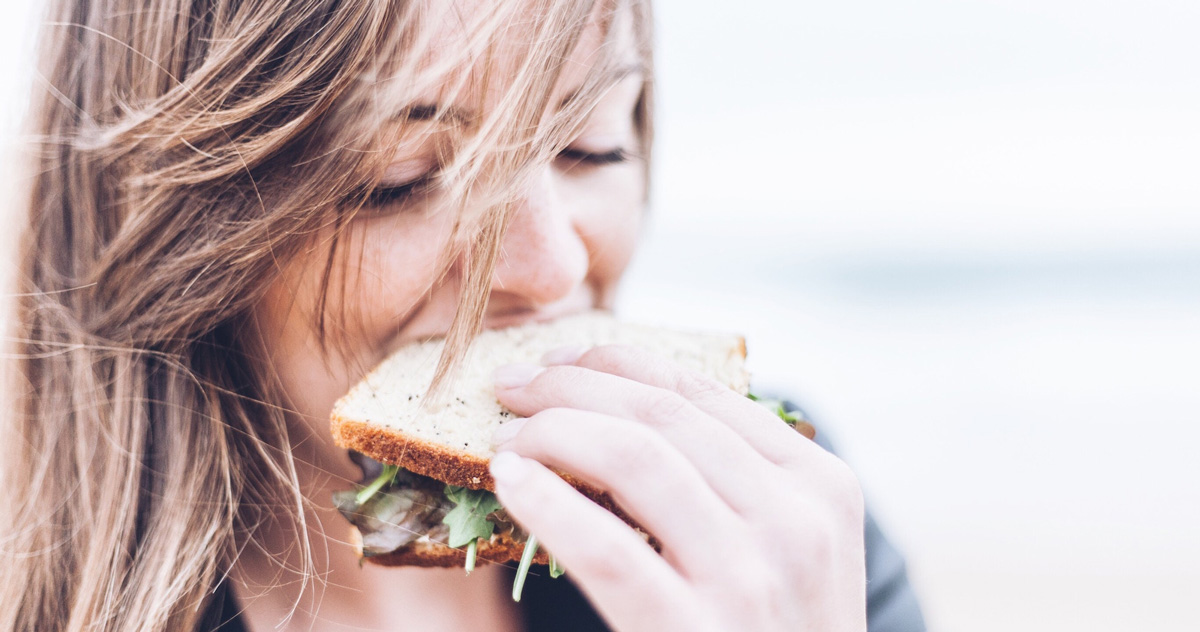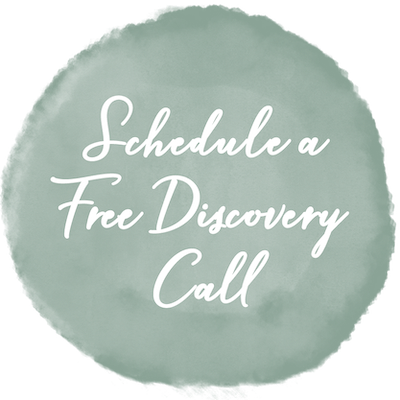When my parents first discovered that I had an eating disorder, even in my preoccupied state I remember being aware of the distress and confusion they felt. Luckily, with the help of a pediatrician and suggested resources and treatment options from him, they knew they would not have to face it alone.
Years later, I am so grateful for the treatment and support I received, and am passionate about providing others with encouragement and hope that although the recovery journey may be difficult, it is worth it and full recovery is possible.
Eating disorders are complex illnesses that come about from a perfect storm made up of varying degrees of your child’s unique psychological and biological nature and stressors, as well as environmental factors including our society’s idealization of the thin body ideal. No one factor is to blame, and not every piece of the causal puzzle needs to be identified in order for recovery to begin and for full recovery to take place.
I know how distressing and confusing it can be though if your child is in denial that there is a problem or is resistant to accepting help when you can see that there is clearly something wrong and want to do everything you can to help them.
As you'll learn more about from the resources listed below, as harmful as they are, eating disorders (especially food restriction and exercise behaviours) are often very in-line with the sufferer’s ego or ideal self-image at the moment. Therefore, your loved one will likely not want to or feel ready to give it up, at least not at first or in full. Moreover, as suddenly as the symptoms may seem to have appeared, predisposing factors were likely there for a long time and the eating disorder is likely meeting certain needs for your loved one and helping them to cope with different aspects of life and themselves. These will all likely need to be explored during the recovery process at some point.
It is this complex nature of eating disorders that makes early detection and timely, specialized treatment so important for optimizing the chances of full recovery. It is also this complex nature that makes them so confusing and painful for those who love and support sufferers of them.
However, I say all of this to encourage you to not give up in providing support, an available ear, and encouragement for seeking professional help. As eating disorder therapist Carolyn Costin writes in her book, The Eating Disorder Sourcebook:
"People who have recovered from eating disorders often cite (and research backs this up) that having someone who loves, believes in, and did not give up on them were crucial factors in their seeking treatment and getting well…. Expect to be rejected in the beginning. It is very likely that the individual will deny the problem, become angry, or refuse to get help. It does no good to argue. Stick to your feelings, how you experience the situation, and your hope that she will get help. Parents may eventually have to use their authority over a child and force him or her to go to treatment. Let a therapist help negotiate power struggles, but do not give up and do not let yourself be left out of the treatment process” (Costin, 2007).
Overall, other than expressing your concern and supporting your loved one and getting support for yourself, the most important thing you can do is to help your child get specialized professional help. Eating disorders are serious but full recovery is possible, and the chances of full recovery increase the sooner the eating disorder is detected and treated.
Many websites, resources and books have been created by experts in the field to provide guidance for this journey. These resources can help you in navigating finding appropriate support for your loved one, providing them with support, and obtaining support for yourself.
Summaries Of Some Initial Guidance If You Are Concerned That Your Child Has An Eating Disorder Or Is At Risk Of Developing One:
"Aside from offering support, the most important thing you can do for a person with an eating disorder is to encourage treatment. The longer an eating disorder remains undiagnosed and untreated, the harder it is on the body and the more difficult it is to overcome, so urge your loved one to see a doctor right away…. If your friend or family member is hesitant to see a doctor, ask him or her to get a physical just to put your worries to rest. It may help if you offer to make the appointment or go along on the first visit." - Helpguide.org
“It is wise to take your daughter to a doctor if she is trying to lose weight and has been dieting. It is critical if you have seen disordered eating behaviors or you suspect or know she has an eating disorder. A doctor should always conduct a thorough physical exam in order to ascertain her health status as well as have a baseline for future reference. However, do not assume taking your daughter to the doctor will provide you with definite answers. Doctors are not specifically trained in nutrition or eating disorders, and they often miss or misinterpret things. Laboratory tests can be misleading, as they notoriously do not indicate problems until a lot of damage has been done.” - Your Dieting Daughter by Carolyn Costin
In relation to the above, if at all possible try to take your child to a physician who is familiar with eating disorders as well as your child’s age group, and make sure that they know everything your child is going through.
“Your primary care doctor can be the first line of defense. Then look into options like therapists or eating disorders programs. Family doctor, trusted counsellor, psychologist, psychiatrist, social worker - make sure any professional you talk to has some experience with eating disorders - if they don’t, they just don’t get it - move on and find someone else.” - Kelty Eating Disorders Parents Survive to Thrive Guide

Resources For How To Talk To Your Loved One About Your Concerns:
- The National Eating Disorders Association: How to Talk to a Loved One About an Eating Disorder
- Kelty Eating Disorders: Providing Support
- National Eating Disorder Information Centre: Help for Friends & Family
Resources For Information And Guidance On Finding Treatment Options:
The Kelty Mental Health Resource Centre (for BC residents) and the National Eating Disorder Information Centre (for all Canadian residents) have online treatment provider directories as well as resource individuals you can speak with, free of charge, to find out about resources and receive overall guidance as well as help in locating and accessing treatment providers.
The Kelty Mental Health Resource Centre:
The Kelty Mental Health Resource Centre is a provincial resource centre that provides mental health and substance use information, resources, help with system navigation, and peer support to children, youth and their families across BC. They provide resources and peer support to people of all ages with eating disorders or disordered eating concerns.
- Online treatment finder (publicly funded options): https://keltyeatingdisorders.ca/finding-help/programs/
- Phone: 604-875-2084 or toll-free from anywhere in BC: 1-800-665-1822
- In Person: BC Children’s Hospital, Mental Health Building, 4500 Oak Street Street, Vancouver, BC, Room P3-302 (3rd Floor)
- E-mail: keltycentre@cw.bc.ca
- Website: https://keltyeatingdisorders.ca
- Hours of Operation: Monday to Friday 9:30am – 5pm PST
The National Eating Disorder Information Centre (NEDIC):
NEDIC provides information and resources to anyone in Canada about eating disorders and weight preoccupation, helps individuals find local treatment and support, and offers support through Canada's only national toll-free helpline. They also have a national database of service providers (both public and private) who work with eating disorders which can be accessed through their website or helpline.
- National Eating Disorders Helpline: 1-866-633-4220 outside of the GTA, or at 416-340-4156 Monday to Friday 9am – 9pm EST. Trained support workers are available to provide support and guidance for individuals with eating disorders or anyone affected by someone else’s.
- Online service provider directory: http://nedic.ca/give-get-help/service-provider-directory
- Website: http://nedic.ca
Helpful Online Resources For Caregivers:
- Kelty Eating Disorders Parents Survive to Thrive Guide: A resource guide for parents of a child with an eating disorder, written by parents with a lived experience
- The National Eating Disorders Association (NEDA) Parent Toolkit (Note: While parts of this resource are relevant for American residents only, such as dealing with insurance companies, the rest of the resource will be helpful for everyone)
- Helpguide.org: Helping Someone with an Eating Disorder
- Centre for Clinical Interventions: Eating Disorders Information for Carers
- Navigating in Uncharted Waters by Don Blackwell
Comprehensive Informational Websites:
- The National Eating Disorder Information Centre (NEDIC)
- The National Eating Disorders Association (NEDA)
- Families Empowered and Supporting Treatment of Eating Disorders (FEAST)
Recommended Books On Eating Disorders for Caregivers:
There are so many helpful books written for families and loved ones of someone struggling with an eating disorder. I have not read them all, and different clinicians may recommend different or specific ones.
Rather than choosing a small selection for you, below I have listed two websites that summarize and recommend a selection of books for families and loved ones. You can read the summaries and reviews, and see which books feel the most appropriate for you.
If you begin working with a therapist who specializes in eating disorders, they may also be able to recommend specific books.
- Eating Disorder Hope: Great Books on Eating Disorders and Families
- Eating Disorders Resource Catalogue: Books for Parents and Loved Ones

Resources Exploring The Topic Of Eating Disorder Recovery And The Meaning Of “Full Recovery” Or “Recovered”:
There are some clinicians, including those working within the 12-step model applied to eating disorders, who believe that once someone has had an eating disorder they will always be in recovery from it to some extent, and that it will never fully be a thing of the past.
However, I align with the belief of many other experts in the field, as well as countless individuals (including myself) who consider themselves to be fully recovered, that full recovery from an eating disorder is possible. The belief here is that the eating disorder truly can be a thing of the past and out of your life forever, and that this means more than simply no longer engaging in symptoms or maintaining a healthy weight.
In my experience, and from what I have heard and read from so many others, both clinicians and recovered individuals, recovered life feels more resilient and full than life even before the eating disorder. In full recovery, there is a feeling of no longer having to white-knuckle through not engaging in eating disorder behaviours or having to fight to ignore eating disorder thoughts. They are truly gone. However, it can take a long time sometimes to get to this place, and it is a matter of not giving up before you do.
Below are articles and a video which expand on the meaning of “full recovery” or being “recovered” and how this differs from being in recovery. There is also a beautiful collection of short video interviews with individuals who have fully recovered, as well as a blog post I wrote about my own journey from being in recovery to being recovered.
I hope that they will provide you with hope that full recovery is possible for your loved one, as well as clarity on what this looks like.
- Recovered vs. Recovering by Carolyn Costin (article)
- The 10 Phases of Eating Disorder Recovery by Kaela Scott (blog post)
- In Recovery vs Recovered for Families and Loved Ones by Carolyn Costin (video)
- Recovered Living, Recovery Stories for Hope (short true stories)
- Eating Disorder Recovery: One Step at a Time by Sarah Rzemieniak (blog post)
More book recommendations on eating disorders and related issues, for loved ones as well as sufferers, can be found at the Eating Disorders Resource Catalogue website.
Below, I’ve also included some wonderful resources for caregivers, children and adolescents for promoting positive body image, size acceptance and healthy behaviours whether your child is already engaging in weight-control behaviours or is beginning to struggle with accepting their body.
Recommended Books & Resources For Caregivers To Help Promote Healthy Body Image, Healthy Practices, And Size Acceptance In Children & Adolescents:
Books:
- Healthy Bodies: Teaching Kids What They Need to Know: A Comprehensive Curriculum to Address Body Image, Eating, Fitness and Weight Concerns in Today's Challenging Environment by Kathy Kater LICSW
- Real Kids Come In All Sizes by Kathy Kater LICSW
- Your Child's Weight: Helping Without Harming by Ellyn Satter MS, RD, LCSW
- Celebrate Your Body (and Its Changes, Too!): The Ultimate Puberty Book for Girls Paperback by Sonya Renee Taylor
- Amanda’s Big Dream by Judith Matz
- If My Child Is Overweight What Should I Do About It? By Joanne Ikeda
- Your Dieting Daughter by Carolyn Costin
Other Resources:
- National Association to Advance Fat Acceptance (NAAFA) Child Advocacy Toolkit
- National Eating Disorders Association: Developing & Modeling Positive Body Image
- Beauty Redefined: Raising Girls with Better Body Image: FAQs

Recommended Books For Children & Adolescents To Help Promote Healthy Body Image And Size Acceptance:
- Amanda’s Big Dream by Judith Matz
- Celebrate Your Body (and Its Changes, Too!): The Ultimate Puberty Book for Girls Paperback by Sonya Renee Taylor
Further book recommendations can be found at A Might Girl, as well as at the end (p. 47) of the NAAFA Child Advocacy Toolkit.
Final Words
I know this journey can feel extremely challenging if you are the loved one of someone struggling with an eating disorder or any food or body concerns.
While everyone’s recovery journeys are unique, however, something they all have in common is the power that the concern, love and support of loved ones has for helping the child in their recovery journey.
Something I’m passionate about sharing is how grateful I am for the ways that my eating disorder recovery journey forced me to grow and develop, and how looking back I actually would not wish this experience away even though it was one of the most difficult things myself or my parents have had to go through.
Make sure to get support for yourself throughout this journey. This will not only help you to cope with this difficult time, but will help you to better support your family and loved one who is suffering.
When researching professional resources for your child, inquire about options for yourself as well. Whether it is your own therapist or a support group, or support from your child’s treatment team, having others who can support you and help you to feel not alone will be so beneficial. Reading the books and resources listed here is another way to support yourself on this journey.
Self-compassion and self-care are such a part of this recovery journey, and not just for the individual with the eating disorder or food and body concerns.
Sending you so much compassion, hope and optimism for your journey,

References:
- Costin C, The Eating Disorder Sourcebook: A Comprehensive Guide to the Causes, Treatments, and Preventions of Eating Disorders, McGraw-Hill, 2007.
- Helpguide.org, Helping Someone with an Eating Disorder
- Costin C, Your Dieting Daughter: Antidotes Parents can Provide for Body Dissatisfaction, Excessive Dieting, and Disordered Eating, Taylor & Francis, 2013.
- Kelty Eating Disorders Parents Survive to Thrive Guide: A resource guide for parents of a child with an eating disorder, written by parents with a lived experience
Support For Your Journey
If you feel you could use more support on your eating disorder recovery journey I would love to connect with you. Contact me to book a free video discovery call so that we can explore if working together would be a good fit. I would love to hear from you.











